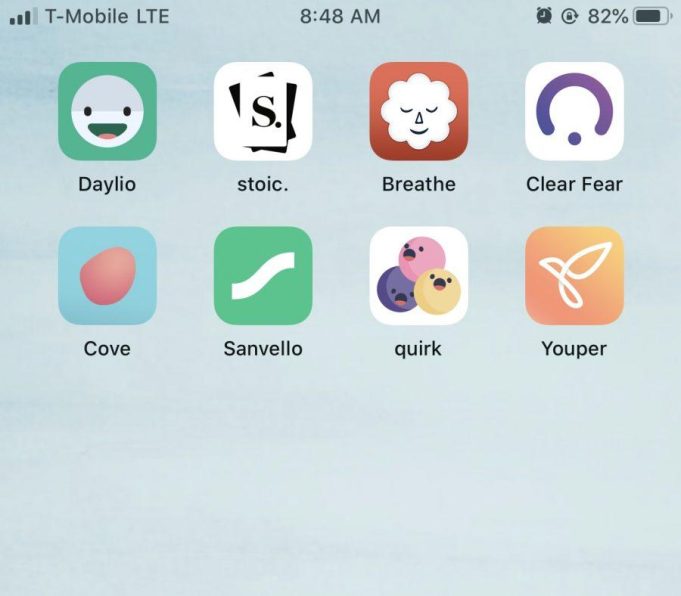In an era where our smartphones serve as personal assistants, entertainment hubs, and even health coaches, the rise of mental health apps marks a new frontier in digital wellness. These pocket-sized therapists promise convenience, anonymity, and immediate support, offering everything from guided meditation and mood tracking to cognitive behavioral therapy exercises. Yet, as these apps proliferate and their user base expands, a pressing question emerges: Are mental health apps truly reliable? This article delves into the efficacy and trustworthiness of these digital companions, exploring whether they stand as a legitimate tool for mental well-being or merely a digital placebo. Join us as we navigate the promises and pitfalls of mental health technology, seeking clarity in the tangled web of innovation and mental health care.
Exploring the Science Behind Mental Health Apps
The rapid proliferation of mental health apps has sparked a significant interest in understanding the scientific principles that underpin their effectiveness. These digital tools leverage various techniques drawn from established psychological practices, such as Cognitive Behavioral Therapy (CBT) and mindfulness-based strategies. Through user-friendly interfaces, they aim to make mental health support more accessible and personalized. Algorithms and data analytics play a crucial role in tailoring content to individual needs, ensuring that users receive interventions that resonate with their specific challenges. However, the question of reliability remains, as the efficacy of these apps often hinges on the quality of the research backing their development.
Several factors contribute to the reliability of mental health apps, including:
- Evidence-based methodologies: Apps grounded in scientifically validated techniques tend to offer more credible support.
- User engagement: The design and interactive elements must encourage consistent use to foster positive outcomes.
- Data privacy and security: Ensuring that user data is protected is paramount to maintaining trust and ethical standards.
While these apps hold promise, ongoing research and rigorous testing are essential to verify their long-term benefits and address any limitations. As technology continues to evolve, the integration of artificial intelligence and machine learning may further enhance the precision and personalization of mental health support delivered through these platforms.

User Privacy Concerns and Data Security in Digital Therapy
In the era of digital therapy, where mental health apps have become a lifeline for many, the issue of user privacy and data security looms large. With sensitive personal data being shared, how secure are these platforms? Many users find themselves grappling with concerns over whether their information is truly private. While some apps boast robust security measures, others may fall short, leaving users vulnerable to data breaches and misuse.
Key concerns include:
- Data Encryption: Is user data encrypted both during transmission and at rest?
- Third-Party Access: Are third-party vendors able to access sensitive information?
- User Consent: How transparent is the consent process for data collection and sharing?
- Anonymity: Can users remain anonymous, or are they required to provide identifiable information?
As the popularity of these apps continues to rise, it becomes imperative for developers to prioritize user privacy by implementing state-of-the-art security protocols and maintaining transparency about data usage. Only then can users feel confident in the reliability of their digital therapy tools.

Effectiveness of AI-Driven Interventions in Mental Health
The rise of AI-powered mental health applications has sparked a new era in therapeutic interventions, offering personalized support and accessibility like never before. These digital companions are designed to analyze user inputs, from mood tracking to cognitive assessments, providing tailored recommendations and insights. Benefits of these AI-driven tools include:
- 24/7 Availability: Users can access support at any time, breaking the barriers of traditional therapy hours.
- Data-Driven Insights: By collecting and analyzing vast amounts of user data, these apps can uncover patterns and offer evidence-based suggestions.
- Cost-Effective Solutions: Many apps offer affordable or even free services, making mental health support more accessible to a broader audience.
However, the challenges cannot be ignored. While AI can simulate empathy and understanding, it lacks the nuanced human touch of a trained therapist. Privacy concerns also loom large, as sensitive personal data is processed and stored. Furthermore, the effectiveness of these interventions often depends on the user’s engagement and the quality of the underlying algorithms. As such, while AI-driven mental health apps offer promising potential, they should complement, not replace, traditional therapeutic practices.

Guidelines for Choosing the Right Mental Health App
When navigating the vast sea of mental health apps, it’s essential to identify ones that truly cater to your needs. Privacy and security should be your top priority; look for apps that are transparent about data protection and comply with relevant regulations. Credibility is another crucial factor—ensure that the app is developed with input from mental health professionals or institutions.
Consider the features offered: do they align with your mental health goals? Some apps provide meditation exercises, mood tracking, or even virtual therapy sessions. Lastly, explore user reviews and ratings to gauge the app’s effectiveness and user experience. Balancing these aspects will guide you toward a reliable mental health app that supports your journey to well-being.






























